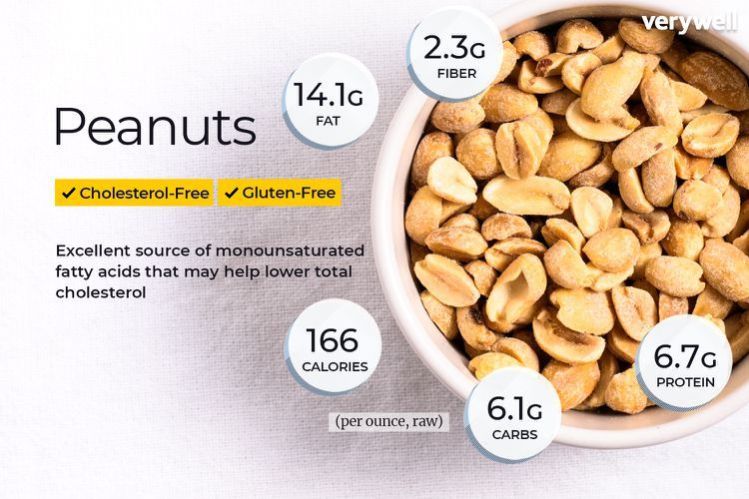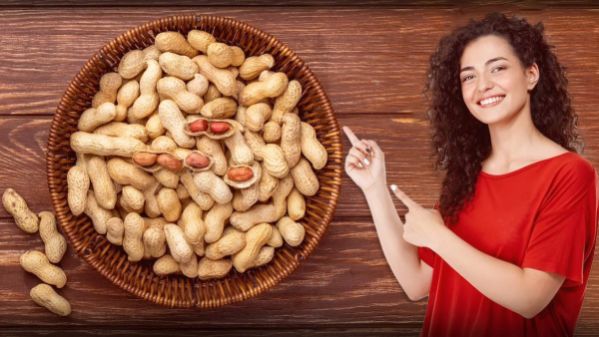Introduction: Benefits of Eating Peanuts
In the cold embrace of winter, finding foods that are not only delicious but also beneficial for your health becomes a priority. Peanuts, often associated with summertime snacks, might not be the first choice that comes to mind in the winter season. However, the benefits they offer might just change your perspective.
Why Should Peanuts Be Your Ally In Cold Weather?
Winter may offer a picturesque view of snow-clad landscapes and cozy evenings, but it also presents challenges to our health. The drop in temperature can drain our energy, weaken our immune system, and wreak havoc on our skin. But fear not, nature provides a crunchy solution hidden within a simple shell: the mighty peanut.

Beyond Snack Time: Peanuts' Nutritional Stores
Peanuts aren't just an on-the-go treat; They are a nutritional powerhouse to combat winter troubles. Here's how they crack the code of winter wellness:

1. Energy Boost:
Winter often reduces our energy levels, but peanuts come to the rescue. They're a powerhouse of protein, healthy fats, and complex carbohydrates, providing sustained energy that keeps you going through the colder months.
2. Immune System Support:
Winter is also prime time for colds and flu. Thankfully, peanuts are rich in vitamin E, zinc and antioxidants that help strengthen your immune system and fight those dangerous viruses.
3. Heart Health Hero:
Cold weather can put extra strain on your heart. But the good fats in peanuts, like monounsaturated and polyunsaturated fats, can help lower bad cholesterol levels and keep your heart happy.
Additionally, peanuts are a good source of magnesium, which helps control blood pressure and maintain a healthy heartbeat.
4. Mood Booster:
Let's face it, winter can be a little depressing. But peanuts may be the sunshine you need! They contain tryptophan, a precursor to the feel-good neurotransmitter serotonin, which can help improve your mood and combat seasonal blues.
5. Bone Formation:
Winter is also a time when we spend less time outside, leading to reduced vitamin D absorption and potentially weaker bones. ]
However, peanuts are a good source of bone-building minerals like magnesium, phosphorus and zinc, which can help keep your bones strong and healthy during the winter months.
6. Skin Saver:
The winter season can be harsh on your skin, leaving it dry and irritated. But vitamin E and antioxidants present in peanuts can help in dealing with this.
These nutrients protect your skin from free radical damage and promote cell regeneration, keeping your skin healthy and hydrated even in harsh winter conditions.
7. Weight Management Aid:
Despite their high-calorie content, peanuts can be helpful for weight management. Their protein and fiber content helps you feel full and satisfied, preventing you from overeating.
Additionally, the healthy fats present in peanuts can help regulate blood sugar levels, thereby aiding weight control.
Eat Peanuts To Sharpen Your Brain
You can do the same with peanuts, but if you want to sharpen your brain I recommend almonds. Peanuts contain vitamin E.
Vitamin E is a powerful antioxidant that protects nerve membranes. The thiamine present in it helps in providing energy to the brain and nervous system.
Enjoy Peanuts In Winter Like This:
Now that you know about the amazing benefits of eating peanuts in winter, how can you include them in your diet? Here are some ideas:
A. Snack on Roasted Peanuts: A simple and satisfying way to enjoy peanuts is to roast them with salt or spices at home.
B. Add Them To Salads And Stir-fries: Peanuts add a delicious crunch and extra protein to winter salads and stir-fries.
C. Make Your Peanut Butter: Skip the store-bought varieties and whip up a batch of homemade peanut butter using only peanuts and a pinch of salt. Spread it on toast, apples or celery for a healthy and delicious breakfast.
D. Put Them In Granola: Add some roasted peanuts to your homemade granola for extra protein and a boost of flavor.
E. Bake With Them: Peanuts can be used in a variety of baked goods from cookies and muffins to cakes and breads.
FAQs: Eating Peanuts in Winter
Q: Can peanuts be enjoyed by individuals with nut allergies?
Absolutely! Peanuts belong to the legume family, and allergies to tree nuts do not necessarily extend to peanuts. However, caution is advised, and consulting a healthcare professional is recommended.
Q: Are roasted peanuts healthier than raw ones?
Both have their merits, but roasting enhances the flavor and makes certain nutrients more accessible. However, moderation is key to avoid excessive salt or oil intake.
Q: How can peanuts be incorporated into a winter-friendly diet?
From adding them to soups and salads to enjoying them as a snack, the possibilities are endless. Experiment with different recipes to find the perfect fit for your winter menu.
Q: Can peanuts help with winter weight management?
Yes, the protein and fiber in peanuts contribute to a feeling of fullness, aiding in weight management during the winter months.
Q: Do peanuts have any impact on mental health?
Indeed, peanuts contain nutrients that support brain health and mood regulation, contributing to overall mental well-being.
Q: Are there any downsides to consuming peanuts in winter?
While peanuts offer numerous benefits, it's crucial to be mindful of portion sizes to avoid excessive calorie intake. Moderation is the key to enjoying their advantages without any drawbacks.
Conclusion: Eating Peanuts
As winter unfolds its frosty charm, let the surprising benefits of eating peanuts be your secret to a healthier and happier season. From nourishing your body to elevating your mood, peanuts bring a myriad of advantages to the winter table.
Embrace this delightful snack, savor its flavors, and revel in the goodness it brings. Winter just got a whole lot tastier and healthier with the humble peanut.







